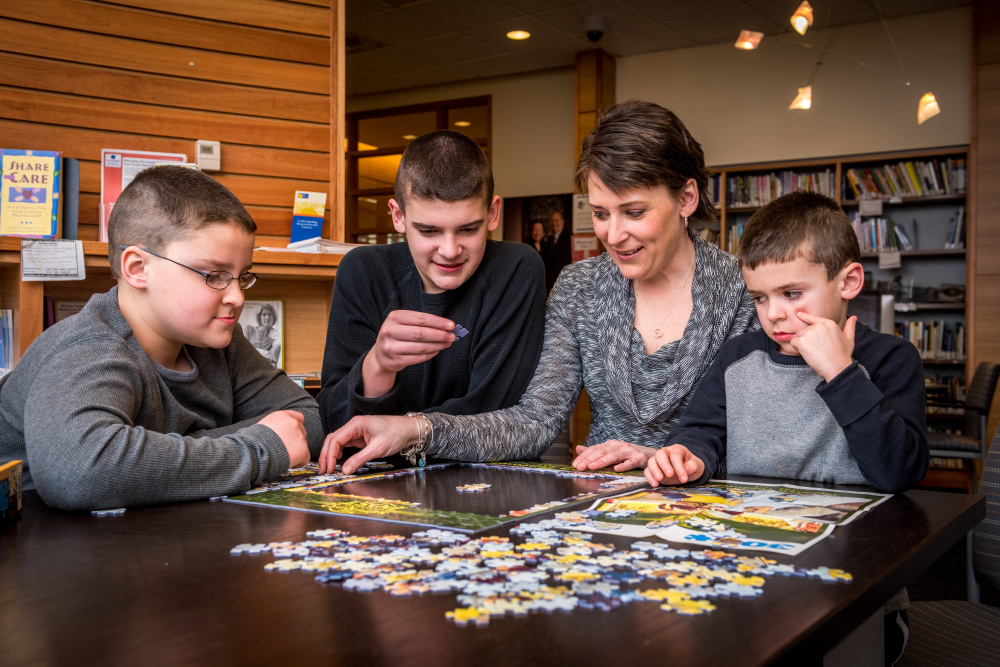Parents face many unique challenges when diagnosed with cancer. Perhaps one of the biggest hurdles is learning how to communicate with children about this difficult and emotional subject.
In this Cancer Conversations podcast episode, Kelly Drummond, LICSW, a Dana-Farber social worker joins Dana-Farber social worker Allison Dibiaso, LICSW, and Sarah Silvia, a single mom who was treated for lymphoma. The three share advice and discuss some of the common challenges parents face during treatment.
Some of the advice highlights include:
Be honest with your kids.
After a cancer diagnosis, family dynamics and routines can change, especially during active treatment. When talking to your kids about your diagnosis, be sure to be honest with them about what is going on and how they can expect things to change in the future. Depending on the age of the kids, keep the language and explanation rather simple along with reassurances that your doctors are giving you medicine to help you get better. Give them information about what is going on but don’t overload them with unnecessary details.
Give your kids time to process the news.
Kids of different ages will take different amounts of time to process what you’ve told them. They will also have different reactions depending on their developmental stage. Just let them know that you are here to answer questions if they have them and that your doctors are taking good care of you.
Keep your kids informed about changes to their routines.
Kids tend to do well when they know what to expect of their day or week. Keeping them up-to-date on what their routines are going to look like while you are being treated is going to help them maintain a sense of stability. This person is going to pick you up from school. This person is going to help make dinner this day. This person is going to take you to soccer practice. A continued structure/routine during treatment is helpful not only for the patient but their family as well.
Let your kids know that they can talk to you.
A cancer diagnosis is a tough thing to deal with and understand. Your kids may be scared or nervous or have a bunch of questions they want answers to. Let them know that the communication channels are open and that they can ask you any questions that they have or simply just come and talk to you. If they ask a question you don’t know the answer to, it is okay to tell them that you don’t know. Maintaining open and honest communication with your kids is important to helping them cope with your diagnosis.
Don’t be afraid to ask for or accept help.
Asking or accepting help can be very hard for some people. But sometimes, you just can’t do it all. Maybe you just need a few hours of extra rest or someone to help take your kids to dance class. Don’t be afraid to reach out to your friends and family and let them know what is going on. Most of the time, friends and family are ready and willing to help out where you need it. It is not a sign of you giving up or admitting defeat. It is simply you saying that right now, while I battle this cancer and take care of my family, I might need an extra set of hands from time to time.
Dana-Farber has support available to you.
Alongside support groups and social work, Dana-Farber also has the Family Connections program. The program is dedicated to supporting adult cancer patients who are parents and their children. They offer guidance, information, and resources to those dealing with cancer in their family and ways to support parents and children by empowering family coping. They have a variety of resources and contact options listed on their website. Check out these two pages for more support options.
To hear more of what Kelly, Allison, and Sarah talk about, visit the Cancer Conversations page or listen below.

Podcast: Play in new window | Download
Subscribe: Apple Podcasts | RSS
